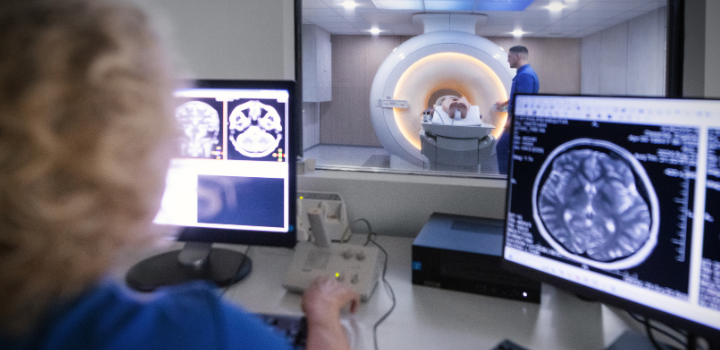£2 million UEA project to help chronic lung condition
By: Communications

Researchers at the University of East Anglia are undertaking a £2 million study which could help people suffering from a chronic lung condition.
Idiopathic pulmonary fibrosis (IPF) is a condition in which the lungs become scarred and breathing becomes increasingly difficult.
Several treatments can help reduce the rate at which IPF gets worse, but there is currently no treatment that can stop or reverse lung scarring.
The UEA team will investigate whether lansoprazole – a commonly prescribed medication for indigestion, heartburn and acid reflux – could help.
And they are looking for people with the condition to take part.
Lead researcher Prof Andrew Wilson, from UEA’s Norwich Medical School, said: “It's not clear what causes IPF, but we think that acid refluxing from the stomach to the lungs may be involved.
“Symptoms can include shortness of breath, a persistent dry cough, tiredness, a loss of appetite and weight loss, and rounded and swollen fingertips. These symptoms tend to develop gradually and get slowly worse over time.
“At the moment, there is no treatment that can stop or reverse the condition, but we want to find out whether a medication called lansoprazole, which is typically prescribed for things like indigestion as it prevents acid reflux, could help improve lung scarring.
“Traditionally we use breathing tests to monitor how people respond to treatment but we want to see if we can use CT scanning as well.”
The trial, funded by the National Institute of Health Research (NIHR)* and sponsored by the Norfolk and Norwich University Hospitals NHS Foundation Trust, will investigate the impact of taking lansoprazole among almost 300 patients aged over 40, who have been diagnosed with IPF.
Half of the patients will be given lansoprazole, while the other half will be given a placebo or ‘dummy tablets’, twice a day for 12 months.
The team will use CT scans to assess whether the medication is helping to reduce lung scarring alongside home-based spirometry measurements – a breathing test which measures how much air you can breathe in and out of your lungs.
A sub-study will be carried out in collaboration with Brainomix – a company specialising in the creation of AI-powered imaging biomarkers to enable precision medicine for better treatment decisions.
The Brainomix sub-study will be run in parallel using the Oxford-based company’s e-Lung platform, an AI-powered image processing module and tool that standardizes the quantification of lung fibrosis on high resolution CT scans to more accurately identify progressive fibrosis patients.
Prof Wilson said: “It is great to have the chance to incorporate the cutting-edge CT scanning technology developed by Brainomix into our study. Not only will this venture tell whether lansoprazole improves the scarring detected on CT scans, but it will allow us to compare CT scan abnormalities to home-based lung function tests.”
Dr Peter George, Senior Medical Director at Brainomix and Clinical Lead for ILD at Royal Brompton Hospital in London, said: “We are excited to have the opportunity to collaborate, and to incorporate our pioneering AI technology into a prospective trial to help assess the efficacy of lansoprazole in IPF patients.
“We are highly motivated by the potential to harness our technology in a way that helps to speed up clinical trials, identify more effective drugs, and improve the lives of IPF patients.”
For more information about the trial, including how you can take part, visit https://www.uea.ac.uk/web/groups-and-centres/projects/tipal
Related Articles

UEA launches study after supplement shows promise in professional racing drivers
Researchers at the University of East Anglia (UEA) are launching a new study to see whether American ginseng extract could boost brain health.
Read more
UEA to receive share of £15 million funding boost for region
University of East Anglia researchers have been awarded a share of £15.3 million to tackle real-world health and care challenges across the region and beyond.
Read more
MRI scan breakthrough could spare thousands of heart patients from risky invasive tests
Doctors may soon be able to tell just how sick a heart failure patient really is by using a routine MRI scan, thanks to new research from the University of East Anglia (UEA).
Read more